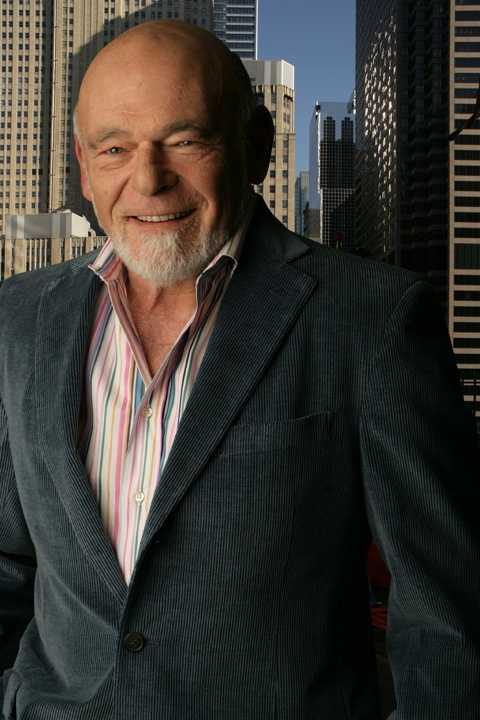Other than at one time holding a significant stake in Starwood Hotels & Resorts (today it is less than 5%) and last year buying nine hotel mortgages at steep discounts, real estate mogul and entrepreneur Sam Zell’s name has not often been publically connected to the hotel business, but it seems that is about to change – on two fronts.
To wit, in November, Zell’s Equity Group Investments (EGI) acquired at a 50% discount to replacement cost the luxury Elysian hotel in Chicago for a reported US$95 million, or US$505,000 per key, with partners Hilton Worldwide and some of the original principals of the 188-room hotel. The hotel will be converted to Hilton’s Waldorf Astoria brand in February.
At the same time, Equity International, Zell’s foreign investment fund vehicle, made a US$75 million investment in Samhi Hotels Pvt. Ltd., a newly formed hospitality property company based in Gurgaon, India, focused on the development, acquisition and ownership of select-service, business-class hotels. Samhi has another US$25 million infusion from GTI Capital Group, Delhi, and a US$30 million commitment from Marriott International to develop a network of Courtyard by Marriott and Fairfield Inn hotels in India. Samhi has also announced the development of a Hyatt Place hotel and has a pipeline of opportunities in Delhi, Mumbai, Hyderabad, Pune and Kolkata.
In addition to India, EI has further interest to develop hotels in markets such as Colombia and other Latin American markets, according to its CEO Gary Garrabrant, who adds EI is pursuing two hotel investment opportunities now that are along the same line as Samhi, only smaller in scale. “We are dominant in Latin America and love the hotel opportunity, but see it as more of a local business in select service,” Garrabrant said. “We are intrigued with Peru, Colombia, Brazil and want to do more in Andes region.”
In interviews with HOTELS’ Investment Outlook, EGI Managing Director David Helfand talked about further plans for hotel investment, while Garrabrant talked about EI’s plans for the hotel space.
Sourcing deals in the U.S.
When acquiring the Elysian for roughly 50 cents on the dollar, the EGI deal team decided on Hilton and its Waldorf brand based on their longstanding relationships with Blackstone and Hilton CEO Chris Nassetta. “We started talking to them about what we saw for the asset and they shared that view. They committed to continuing what is best about the hotel, which we were adamant about,” Helfand said.
Helfand added that the Elysian is a good fundamental asset they hope to stabilize and exit “when the asset matures into what it should be.”
Helfand said the EGI team is out sourcing other hotel acquisition opportunities up and down the segment tiers in the U.S. “We don’t have a luxury mindset, or any other,” Helfand said. “We are not ego guys. Sam is the largest owner of mobile home parks in the country. …We evaluate investments on their merits and we don’t fall in love with the real estate. Everything is for sale all the time. …We are asset specific, driven by location, the physical quality of the asset and what partner we can bring in to operate whom we can believe in.”
Helfand adds that the “stabilization money” being used to invest in the hotel space generally means a five- to seven-year hold, but EGI is willing to hold assets longer to maximize returns. “Our sweet spot is putting between US$25 million and US$75 million of equity to work,” he added.
The global play
At EI, Garrabrant closed Fund V in September and has committed about half of the US$650 million to invest on real estate companies or operating platforms in emerging markets.
“We want to be perceived in the hospitality sector as we are in others as a partner of choice and an intelligent investor, a company builder,” Garrabrant said. “We have skills complimentary to a hotel company’s skills, and we are sensitive to the metrics more than the concept, so the economics will drive our activity. …We are known, regarded and can bring capital and recognition, which is valuable and can be a driver.”
Garrabrant said EI is going to make Samhi a very big company with as many as 100 hotels in its portfolio in the 2.5- to 3.5-star range. “We will use our capital and will invite institutional partners to join us. It will be fascinating.
“With Samhi, we see an amazing opportunity to build a national platform where we will be brand agnostic and yet be an institutional owner of hotels, borrowing a page from REITs in the States,” he said.
Garrabrant sees Samhi as an acquisition vehicle in India, as well. “People who came before us built things they no longer want/can own,” he said. “There are busted deals across India to give (Samhi principals) Ashish Jakhanwala and Manav Thadani another way to grow. …It is rare to find a scenario where there is a marriage between growth and value. India has spectacular growth potential but with unexpected changes (to the economy) there is no competition (to acquire) as the big private equity players are in full retreat.”
As for the exit, Garrabrant said Samhi could become a company of such sufficient scale it could access public equity or will attract an institutional buyer. “There will be a natural conclusion to the growth capital in eight to 10 years,” he added.
But for now, exit is not the focus. “The hospitality opportunity hasn’t been obvious to us in the past five to seven years in part because there was too much capital and we are not a traders,” Garrabrant said. “We are an investor. We hate competition. That goes to our early, if not first, preference. In fact, we prefer to be the only ones [in a market]. We don’t need association and we are comfortable with that.
(Excerpted from an upcoming article in HOTELS’ Investment Outlook)



